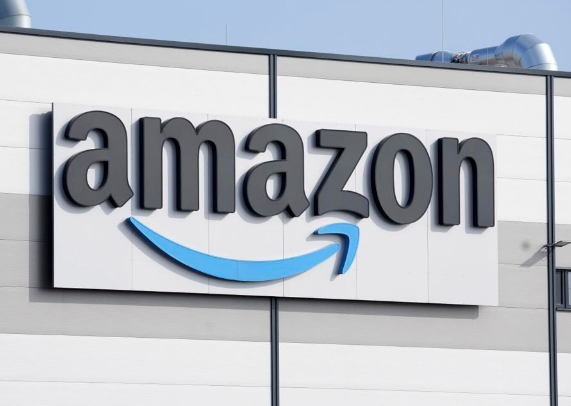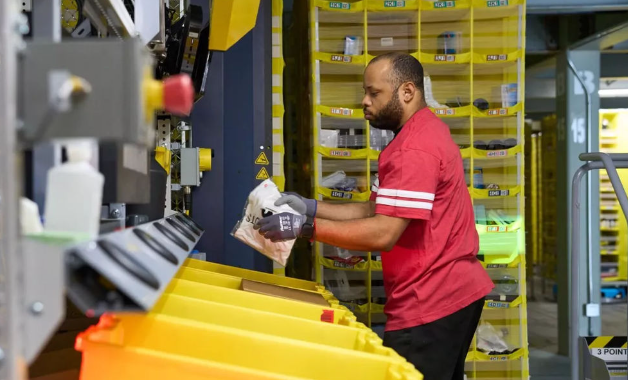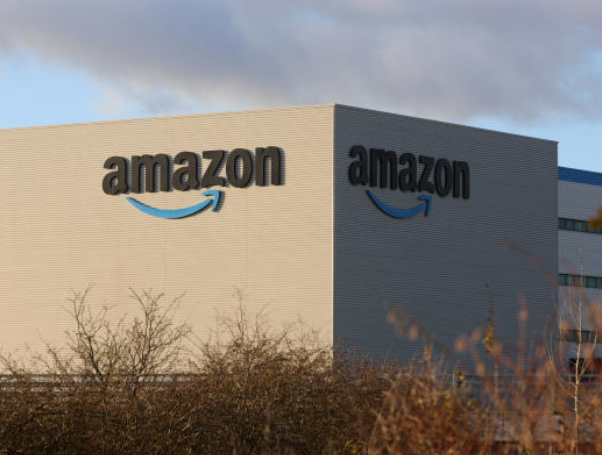
France Holds Amazon Accountable for ‘Excessively Intrusive’ Monitoring, Imposes $35 Million Fine
France Imposes $35 Million Fine on Amazon for ‘Excessively Intrusive’ Monitoring Practices
France’s privacy watchdog has taken a firm stance against e-commerce behemoth Amazon, imposing a hefty $35 million fine for what it deems as an “excessively intrusive” monitoring system employed for warehouse workers’ activities. The French Data Protection Authority (CNIL) delivered a sharp rebuke to Amazon, asserting that the company’s monitoring practices crossed privacy boundaries set by the European Union.

CNIL’s investigation scrutinized Amazon’s monitoring system used by its France Logistique division, highlighting concerns over the close surveillance of employees. The watchdog found Amazon’s practices to be in violation of EU privacy standards, raising alarms over the intrusive nature of the monitoring system.
Amazon, however, has vehemently disputed CNIL’s findings, asserting that the allegations are “factually incorrect.” The tech giant defended its monitoring practices, emphasizing the industry-standard nature of warehouse management systems. Amazon underscored the necessity of such systems for ensuring operational safety, quality, and efficiency, as well as meeting customer expectations.
Central to CNIL’s concerns was Amazon’s utilization of handheld barcode scanners by warehouse workers to track packages throughout the facility. The watchdog raised objections to the meticulous tracking of workers’ movements and the pressure exerted on them through continuous monitoring.
CNIL’s report pointed out Amazon’s use of a scanning device colloquially referred to as a “stow machine gun,” which tracks parcel scanning down to the nearest second. The watchdog criticized this level of precision, arguing that it subjects employees to undue scrutiny and pressure. Additionally, CNIL highlighted concerns regarding the measurement of work interruptions and periods of inactivity, citing potential violations of EU privacy rules.

EU privacy regulations expressly forbid the implementation of monitoring systems that excessively scrutinize employees, requiring them to justify every break or interruption. CNIL’s findings underscore the importance of upholding privacy standards and safeguarding employees’ rights in the workplace.
The clash between Amazon and CNIL reflects broader debates surrounding workplace surveillance and privacy rights in the digital age. As technology advances and monitoring capabilities expand, regulatory bodies like CNIL play a crucial role in ensuring that companies adhere to privacy standards and respect the dignity and rights of workers.
Amazon’s dispute with CNIL highlights the complex balance between operational efficiency and employee privacy. While companies may seek to optimize productivity through monitoring systems, they must do so in a manner that respects privacy rights and maintains a healthy work environment.
In conclusion, CNIL’s imposition of a $35 million fine on Amazon underscores the importance of upholding privacy standards in the workplace. The clash between Amazon and CNIL serves as a reminder of the ongoing challenges in balancing operational needs with employee privacy rights. As technology continues to evolve, regulatory bodies must remain vigilant in protecting privacy and upholding fundamental rights in the workplace.

The repercussions of CNIL’s action against Amazon extend beyond the specific case at hand, sparking broader conversations about the ethical implications of workplace surveillance and the need for regulatory oversight in safeguarding employee rights. As technological advancements continue to reshape the nature of work, concerns over privacy, autonomy, and dignity in the workplace become increasingly pertinent.
CNIL’s France intervention serves as a timely reminder of the importance of robust privacy regulations and effective enforcement mechanisms to protect individuals from potential abuses of surveillance technology. By holding companies accountable for their monitoring practices, regulatory bodies like CNIL play a critical role in fostering a fair and transparent work environment where employees’ rights are respected.
Moreover, Amazon’s response to CNIL’s findings underscores the complexities inherent in balancing the imperatives of operational efficiency with the principles of privacy and human dignity. While companies have a legitimate interest in optimizing productivity and ensuring workplace safety, they must do so in a manner that respects the privacy and autonomy of their employees.
For the latest updates-click here.


